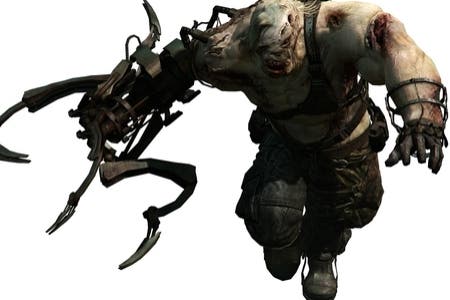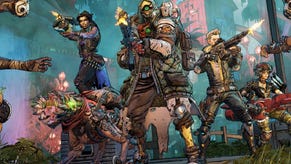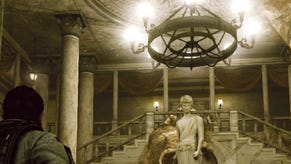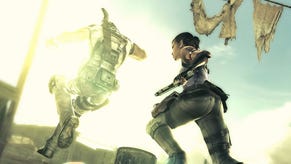Resident Evil 6: Zombie Dinosaur!
Wanted: One Asteroid. Rich Stanton looks at how and why Resi 6 turned out the way it did.
"We have no obligation to make history," said the late Hollywood producer Don Simpson. "We have no obligation to make art. We have no obligation to make a statement. Our obligation is to make money." If you've seen Flashdance, you know what he's talking about. Simpson's quote is great because it effortlessly skewers most of the assumptions that any argument about a mainstream movie - or videogame - makes as standard. The only obligation Capcom had with Resident Evil 6 was to make money, and boy does it show.
Resi 6 is a game I enjoyed a great deal, with a couple of sequences that stand with the series' finest, and yet at the close it felt like something of a missed opportunity: good, not fantastic. Simon Parkin laid bare its archaic construction in Eurogamer's review, and what this made me think of was the concept behind Resi 6 - the moment when Capcom decided they'd go for the blunderbuss approach.
The idea behind Resi 6 is re-using the systems of Resi 4 & 5, fine-tuning them a little, and then making up for this lack of progress by giving players a gargantuan amount of content. In an age where a seven hour singleplayer campaign is considered acceptable by the industry at large, Resi 6 quadruples it (my completed save was around 28 hours, though I was playing on Pro and died quite a bit). So: old design, but a hell of a lot of it.
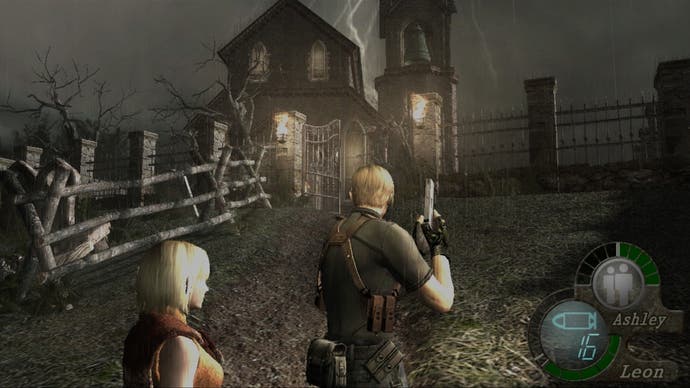
This could be tied into a simple console narrative - everyone knows the current generation is winding down, and doubtless the next series instalment will appear on a console we don't yet own. So perhaps Capcom thought they might as well squeeze what they could from what they had, rather than trying to innovate at the tail-end of a cycle. But I think it has much more to do with the company's ongoing and overarching ambition for cracking the international market - the strategy that has seen Capcom outsourcing certain of its series to western developers, with mixed results, and carefully incorporate the methods of successful western-developed games into their in-house projects.
The most obvious influence on Resi 6 is Modern Warfare and the subsequent annual iterations of COD.
The most obvious influence on Resi 6, for example, is Modern Warfare and the subsequent annual iterations of COD. It's striking how totally the Resi 6 development team have swallowed the idea of a game's biggest moments being largely spectacle with limited player control - you'll even note that the thirdperson perspective used in Resi 6 is somewhat closer to the shoulder than previous entries, and incredibly close during most cinematics, pulling our view ever-nearer to firstperson.
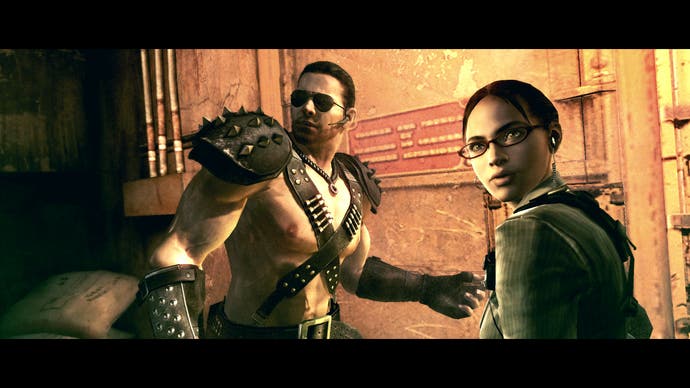
On the one hand this delivers, because the production values are off the charts and Resi 6 has plenty of amazing looking moments. On the other, it's an abdication of responsibility. The QTEs were what I disliked most about Resi 6, because this mechanic replaces control in a medium that's all about control. Time was that Resident Evil 4 reinvented the entire action genre, forcing other developers worldwide to sit up and take notice of what was being built in Osaka. Now Resi 6's action sequences are the most egregious example of Capcom's developers following the lead of others, and it almost undermines the great job they've done on the bulk of the game's combat.
It means that, for all I enjoyed Resi 6, there's no doubt in my mind it's a dinosaur. A somewhat heroic but doomed effort from an old soldier. This is no doubt why it's received a pasting in certain places, which you have to respect - the expectation of a main Resident Evil game is that it will offer something special, something new, and Resi 6 merely delivers a good action game with few surprises outside of its length. If it disappoints for me, it disappoints because it plays safe.
For all I enjoyed Resi 6, there's no doubt in my mind it's a dinosaur. A somewhat heroic but doomed effort from an old soldier.
So the problem is that Resi 6 lacks invention. Is the answer reinvention? Perhaps, but what if Resi 6 is a giant success? The game has shipped (not sold) 4.5 million copies, and it's well to remember what a profile the series has across several media - most notably, the ludicrously successful movies. When I think of a Resident Evil reinvention, it's something like the Gamecube remake of the original crossed with Amnesia. But would that sell? Would it hell. Capcom's only obligation is to make money. Going on where the series has enjoyed most commercial success, the models for a revamp are Resident Evil 5 and those terrible, terrible movies.
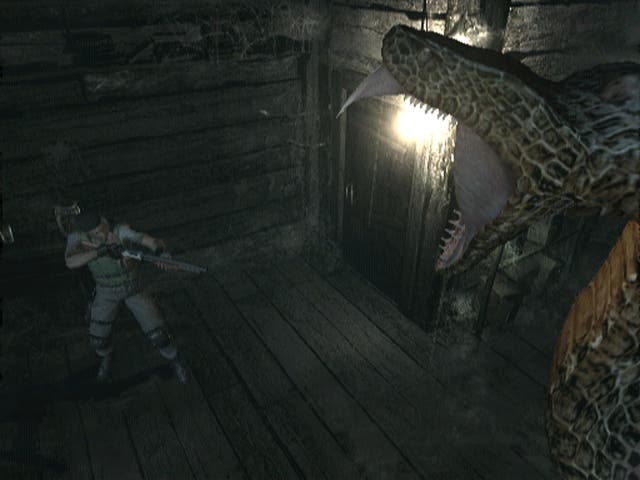
So be careful what you wish for. I interviewed Resi 6's producer a couple of months ago, and couldn't resist popping the reboot question. "My personal answer to that might stray a little bit," says Yoshiaki Hirobayashi. "But what we want is the series, the situations and the characters, to resonate with gamers. For each iteration we keep scaling it up and making it bigger and better - and there may be a limit to that, and that's when we'd think about something like a reboot. As long as the series is resonating with fans, and this version of Resident Evil is winning new fans, that's what we want. If that reaches a limit, and it hasn't, then we'd have to decide whether to take it in a new direction."
Resi 6 is the moment where scaling things up, and making them bigger and bigger, reached its limit. The production values may be great, but they plaster over the lack of fresh ideas from Capcom themselves. Resi 6 demonstrates that the Japanese giant has huge technical prowess, not to mention the sheer manpower to produce something of this scale - but the casualty has been Resi's place at the front of the pack. It feels a bit odd to chastise a company for only producing a 'good' game, but the fact is that Capcom's heritage leads one to expect better - if that brand on the box means anything, to me at least, it's quality. It still means that in my head, despite the Bionic Commandoes and Operation Raccoon Cities. That doesn't mean it always will.
In some ways you could see Resi 6 as the story of modern Capcom writ large - particularly in the way that, as it absorbs and co-opts western influences, characteristics of the series of old are overwritten and lost. Despite the constant excitement it lacks a certain brashness, tinkers rather than innovates, and chooses action over atmosphere every time. There's a time and a place for B-movie shooters, of course, and this may well be what people want. But where Resident Evil goes from here is the most important moment in its history. More braindead thrills, or more of a brain? Like anyone raised on the series, I'm hungry for the latter.
